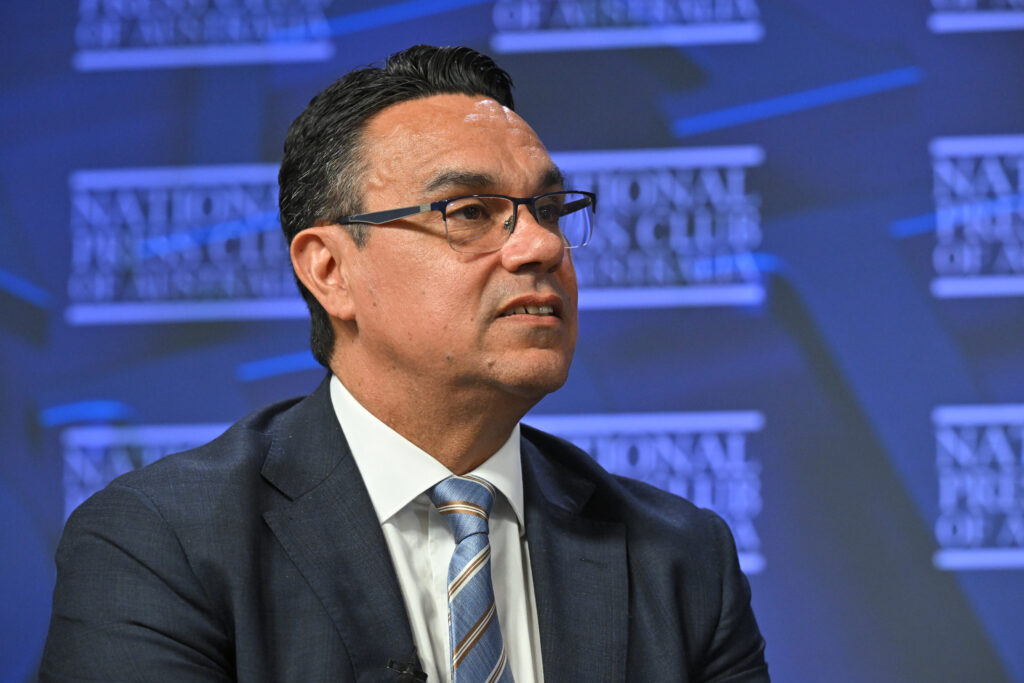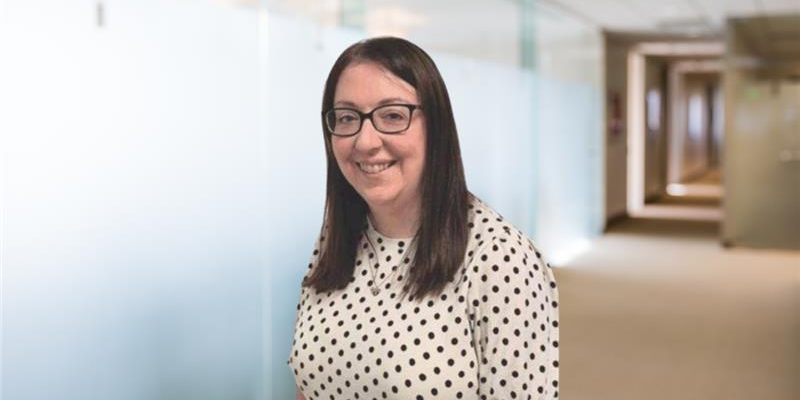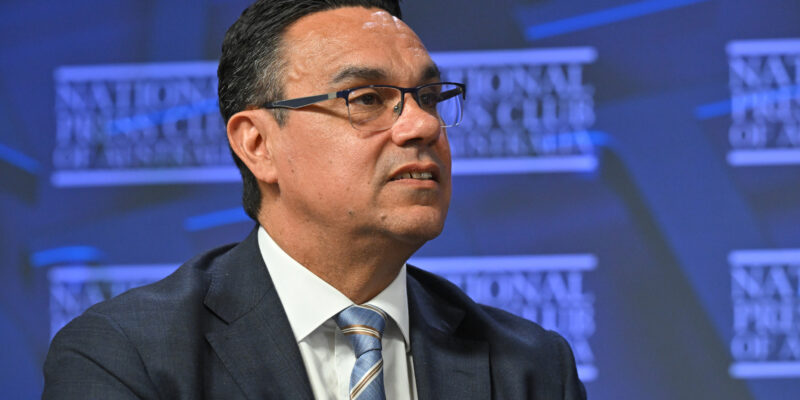Reforms won’t break you — AUSTRAC chief tells Tranche 2 businesses
In an exclusive interview, AUSTRAC chief executive Brendan Thomas tells conveyancers why the new AML regime is so important and why its built to support, not sink, small operators.

IN an exclusive interview, AUSTRAC chief executive Brendan Thomas tells conveyancers why the new AML regime is so important and why its built to support, not sink, small operators.
Australian Conveyancer: Given we are less than 12 months from July 1, 2026, what’s you’re feeling about how prepared conveyancers are for the Tranche 2 regime.?
Brendan Thomas: We want to make this transition as easy as possible. Most importantly, we don’t expect you to do it alone.
In the past, we’ve expected businesses to assess their own risk and build their own programs, but because we are committed to setting newly regulated businesses up for success, we are providing comprehensive guidance. For low risk, less complex businesses, this includes starter programs to get them set up for this reform. These starter programs will provide a risk assessment for conveyancers and the elements they need to be able to address money laundering risks.
While these resources are being developed, conveyancers can start to familiarise themselves with money laundering techniques so they can begin to understand how criminals might abuse conveyancing services in their money laundering operations.
We have a wide range of information available to help current and new entities understand risk. These include our financial crime guides, money laundering national risk assessment and the terrorism financing and proliferation financing national risk assessments.
AC: What do you say to the sentiment that we are hearing from many of the practitioners out there – especially small businesses/sole traders – who fear the extra workload and cost could send them to the wall?
BT: There is no reason why these reforms should send any conveyancers to the wall. For most non-complex businesses the requirements are quite straight forward.
Let’s pare it back to basics – first, you have to enrol. That’s easy to do and from 31 March next year you will be able to do that on our website, and we are introducing many changes to make that as simple as we can.
Second, you will need to have an AML program that identifies your money laundering risks and explains how you will manage those risks. If you’re a sole operator or small business, AUSTRAC’s starter kits will cover this or get you most of the way there.
Next, you will need to know your customer. This is not a new concept for conveyancers and there will be existing identity and verification processes that will largely address this requirement. Where the customers are low risk, and for most businesses that should be most customers, you can use simplified measures to do this.
Lastly, business will need to report things that don’t seem right to AUSTRAC. Businesses know their industry and have a good sense of when something doesn’t add up in a transaction. There is now an avenue to report that. You are not expected to prove wrongdoing and it’s not the same as reporting something to the police. We are asking you to report suspicions to us and again we’ll provide you the avenue to do that online.
The laws themselves also recognise sole traders and micro businesses by streamlining some requirements, so they make sense for these types of business. I want to reassure businesses that the level of detail and complexity we require is going to be proportionate to the size and complexity of your business.
AC: It’s about two years since you became the CEO. What has that time been like for you personally – in terms of this immense piece of work. Can you put the Tranche 2 reforms into perspective?
BT: I’ve been in the role for 18 months and it’s just emphasised the scale of the problem of money laundering in Australia. It comes from drug trafficking, people trafficking, scams, tax fraud—it’s not just Australian money—it’s also coming from overseas criminals and being placed in the Australian economy.
It is a real problem and has real consequences. There are organisations out there that just launder money, professional launderers, they use any means they can find to do it. It’s why we all need to work together to fight them and keep illegal money out of our business and our economy. The goal of the reforms is simple: to stop criminals from exploiting legitimate business in order to clean their dirty money.
The reforms are not about increasing regulatory burden—they’re about safeguarding our communities. These reforms will close long-standing gaps in our defences against money laundering and terrorism financing.
By bringing conveyancers into our reporting population, we’re making it much harder for criminals to take advantage of legitimate businesses.
For decades we’ve been out of step with international standards, leaving key gatekeeper professions outside of the anti-money laundering framework. The reforms bring us into line with 200 other jurisdictions. It’s one of the most significant upgrades to our financial crime defences in 20 years.
AC: The Financial Action Task Force review is taking place next year. What can you tell us about that and AUSTRAC’s involvement?
BT: The Financial Action Taskforce (FATF) is the global organisation that sets standards for managing money laundering and terrorism financing. It enforces those standards by assessing how well countries comply with them. Next year they will assess Australia, a process called a mutual evaluation.
Australia has been significantly out of step with the rest of the world in money laundering regulation and the consequences of a poor evaluation on any country’s economy can be very serious. It can affect the cost of credit, increase internation risk assessments, increase the cost of borrowing credit and reduce free investment in a country. We are preparing for next year’s mutual evaluation. Our progress in implementing the reforms is crucial to show the FATF that we have addressed gaps and that our laws, supervision and enforcement are working.
Our regime needs to meet global standards—when criminals and terrorists operate globally, weak links anywhere in the system can be exploited. Australia needs to do its bit, and next year we will be assessed against this.
By acting now, we can walk into that evaluation and show that we are serious about tackling financial crime.
AC: Much has been made of the fact that Australia is lumped in with a handful states like Haiti and Madagascar for being non-Tranche 2 compliant. But given the USA kept popping up on those same lists, what’s so bad about Australia’s position?
BT: If Australia were to be officially listed as a country with strategic deficiencies (or grey listed as it is known) it would signal to the world that our financial crime controls aren’t up to scratch.
That signal would have huge economic impacts. It could drive up costs for business, slow down cross border transactions and make it harder to attract international investment.
We cannot become an outlier in global financial crime defences. We need to protect the integrity of our financial system and our reputation as a safe and reliable place to do business.
AC: You’ve said you are not expecting perfection from Day 1, but the penalties – like the possibility of $19,000 per day fines – do look severe. What’s the rationale around punishment?

BT: We expect people to put forward their best effort in complying with the law, just as you would for any other law. AUSTRAC does not expect businesses to eliminate money laundering. Let me be clear—we will not penalise a business that, despite having an appropriate AML/CTF program, is unknowingly exploited to launder money.
We’re focused on helping entities build capability. But if there’s no attempt to comply—or if our intelligence already shows involvement in criminal activity—that’s when we’ll act. If you’re genuinely trying to do the right thing, you will not be on our radar.
The expectation is that you understand the risks, take reasonable steps to know your customers, and report suspicious matters. We want to make it hard for criminals to profit from their crimes and we are not interested in businesses ticking boxes for the sake of compliance only.
AC: The UK publishes the fines handed out to conveyancers. Is that something you will be doing here in Australia and what’s the thinking behind that?
BT: When we think a business is not taking its legal responsibilities seriously, and we feel the need to take some kind of enforcement action, yes we do usually publish that information. But let me repeat, if you are genuinely trying to do the right thing then you won’t have to worry about this.
AC: Late last year, AUSTRAC warned conveyancers to avoid out-of-the-box solutions. But there is clearly a rush on the part of tech providers to be involved in the process. What are your thoughts on that?
BT: It’s important to remember you can’t pass off your legal responsibilities. You can get people to help you, whether that’s technology or advice, and many businesses, including some of Australia’s largest ones, do that. Remember, your legal responsibility is yours alone, you can’t outsource that. So, if you do get external help, make sure it’s of good quality.
A regtech product or AML CTF advisor might be a great way to support your business to meet its reporting obligations, but that solution doesn’t by itself mean a business is compliant or managing its money laundering risks properly.
Third party advisors or systems are only ever part of a solution; management responsibility, board oversight, and understanding and responding appropriately to risk are the responsibility of each entity.
We want to avoid that sense of false confidence, especially for the conveyancers and other new T2 businesses that are looking at AML/CTF compliance for the first time.






